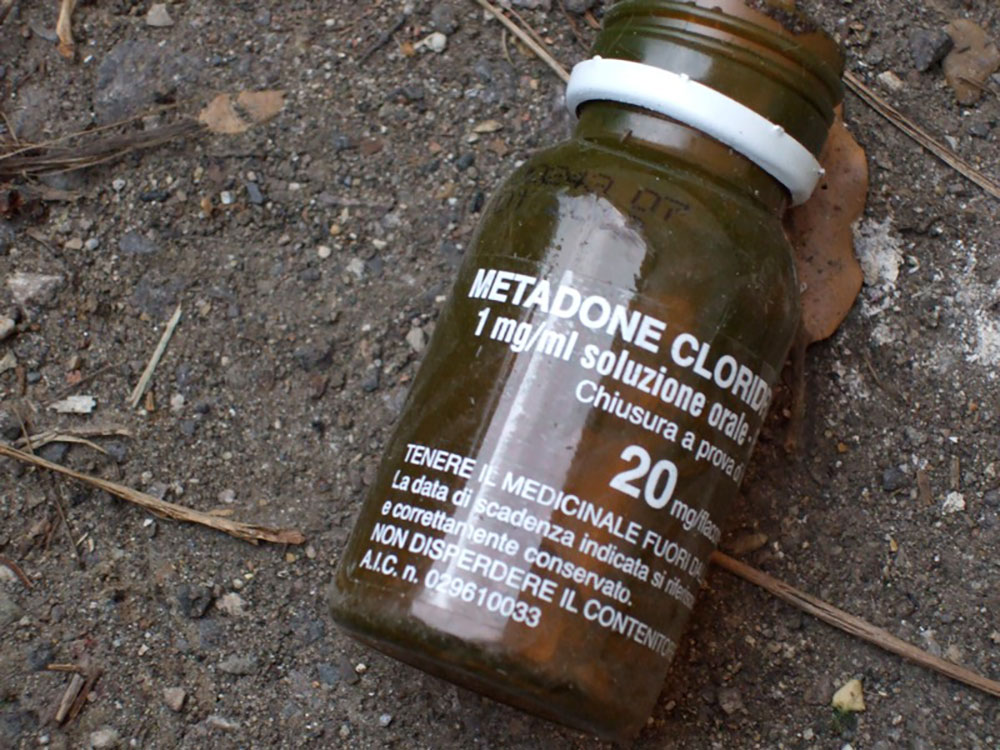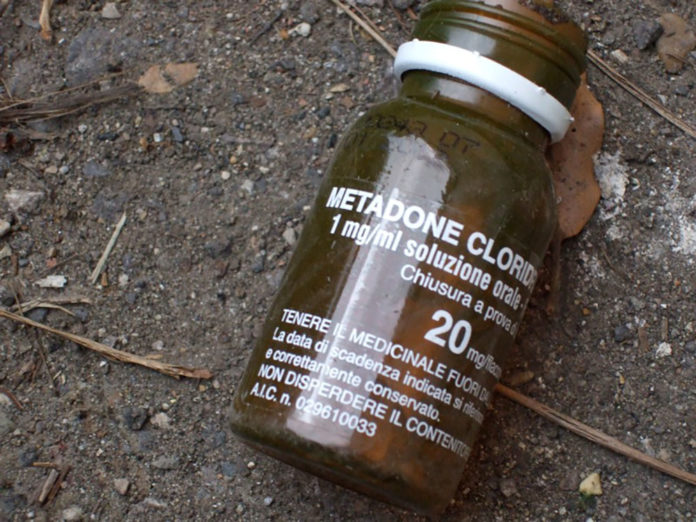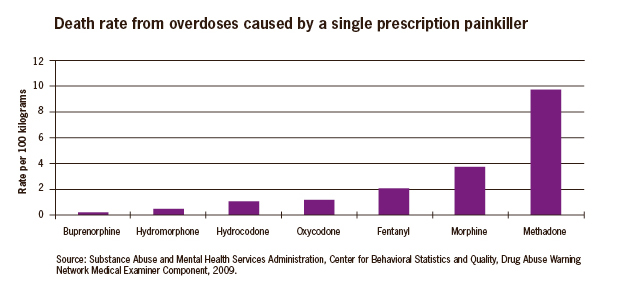Due to the side effects and risks linked to methadone, many countries around the world do not allow the drug to be used for opioid substitution therapy.
There are several political, social, and cultural factors that have impeded the expansion of methadone treatment for opioid addicts. But the most common argument against methadone made by international leaders is that the high risk for overdose outweighs the drug’s benefits.
Last October, the Danish Medical Journal reported that upon examination of fatal poisonings in Denmark in 2012, researchers concluded that increasing methadone deaths were associated with the use of methadone in substitution treatment. “A total of 188 fatal intoxications were recorded,” researchers stated. “The median age increased from 37.5 in 2007 to 41.5 in 2012 … Methadone (59 percent) was the main intoxicant.”
Last January, the European Addiction Research Journal published a systematic review of studies about misuse/diversion of drugs used in opioid substitution treatment (OST).
“Fatalities due to methadone overdose are a major concern in OST administration: deaths in which methadone was the sole reported drug totaled 258 in Scotland and 2,343 in England over the period 1993-2008,” researchers stated.
“Diversion of OST has impacts on a community that is beyond the intended OST recipient. The direct impact includes risk to others (unsupervised use; unintended exposure of children to diverted medication) and drug-related criminal behavior. The indirect impact includes the economic costs of untreated opioid dependence, crime, and loss of productivity.”
The risks
Methadone is a synthetic opioid and narcotic that was first developed in Germany and for decades has been a big part of medication-assisted treatment (MAT) in the U.S. It’s offered in pill, liquid and wafer forms.
Physicians normally prescribe a daily dose of methadone to patients who need help managing their use of heroin or other opiates. The drug is widely used because it is available in an inexpensive, generic form, which is on Medicaid’s preferred drug list in 33 states.
By law, methadone can only be dispensed through an opioid treatment program (OTP) certified by the Substance Abuse and Mental Health Services Administration (SAMHSA).
However, SAMHSA alerts that the drug is addictive and associated with a range of serious side effects, such as:
- Experiencing difficulty breathing or shallow breathing
- Feeling lightheaded or faint
- Experiencing hives or a rash; swelling of the face, lips, tongue or throat
- Feeling chest pain
- Experiencing a fast or pounding heartbeat
- Experiencing hallucinations or confusion
Methadone is also more dangerous than most may think because its effects on organs such as the heart and lungs can last up to 59 hours. In addition, people who take methadone tend to take more of the drug before the first dose has been fully metabolized, which can cause life-threatening respiratory depression and heart rate abnormalities.
Is the cure as bad as the disease?
In 2005, HBO released a documentary called “Methadonia,” which focused on methadone users who were able to let go of heroin but were still struggling with a newfound but just as detrimental addiction to methadone.
The film featured subjects who referred to the drug as “liquid handcuffs” – perhaps because many doctors recommend that people who are in treatment take methadone for the rest of their lives. Some users try to reduce their consumption and get off methadone completely, but most people become long-term users.
Throughout the U.S., methadone is dispensed by both private and public clinics that are known to become gathering spots for addicts. Italian Family Pizza, located in Seattle’s First Hill neighborhood, has been struggling with… (continue reading)


















